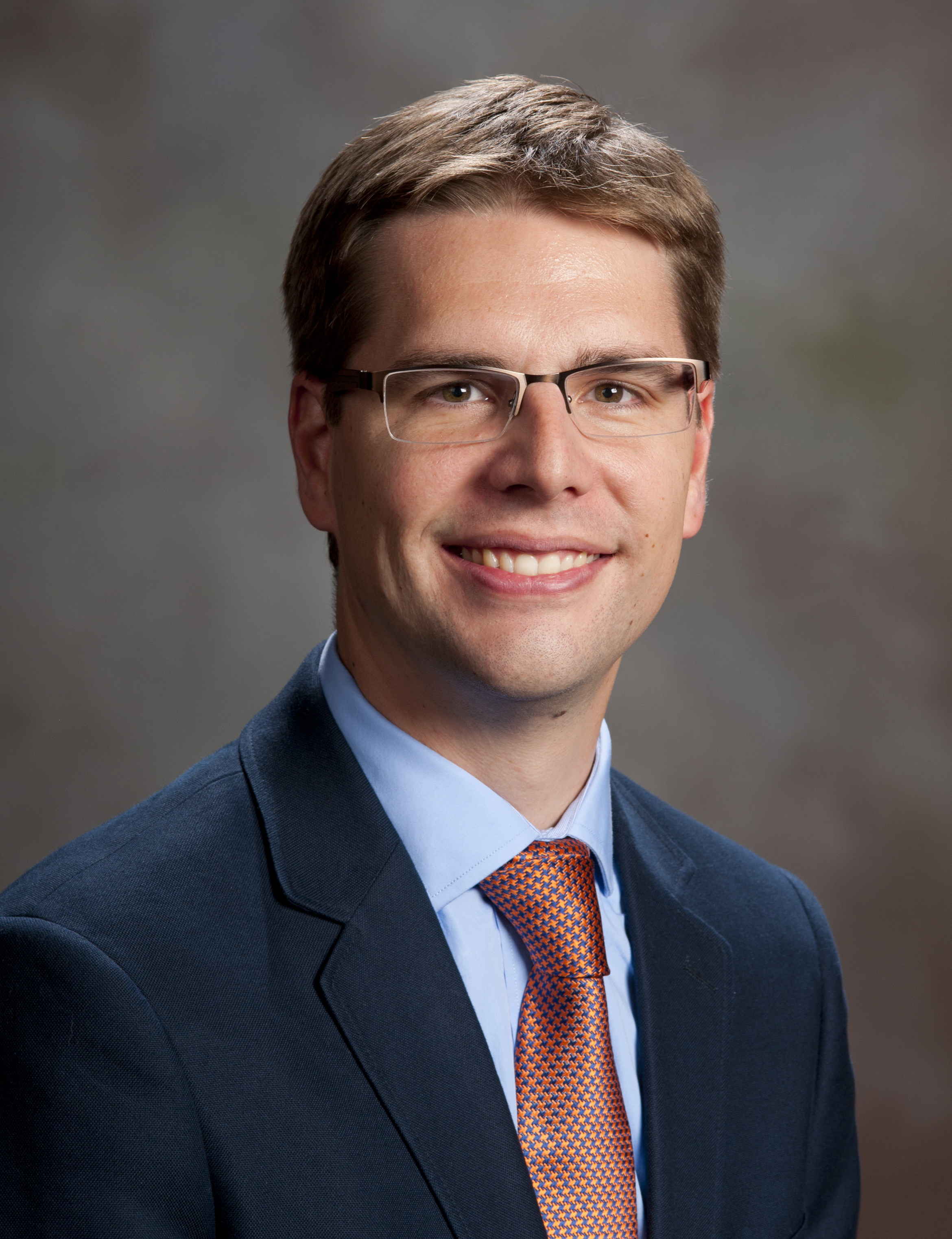Christopher Williams named W.S. Pete White Chair for Innovation in Engineering Education

Christopher Williams, associate professor of engineering education and mechanical engineering in the College of Engineering at Virginia Tech, has been named the W.S. Pete White Chair for Innovation in Engineering Education by the Virginia Tech Board of Visitors.
The W.S. “Pete” White Chair for Innovation in Engineering Education was established by American Electric Power to honor Pete White, a 1948 graduate of Virginia Tech, and to encourage new interest in the teaching of engineering and improve the learning process. Recipients hold the chair for a period of two years.
A member of the Virginia Tech faculty since 2007, Williams has impacted hundreds of engineering students through his innovative teaching methods that use interactive classroom instruction technologies combined with hands-on learning experiences. He is director of the Virginia Tech Design, Research, and Education for Additive Manufacturing Systems (DREAMS for short) Laboratory.
He has been instrumental in integrating 3-D printing, or additive manufacturing, into the College of Engineering curriculum through mentoring senior capstone design projects in product design, and by teaching courses on 3-D printing open to both undergraduate and graduate students. His course engages students in the science of 3-D printing through project-based pedagogy.
Williams has also been very effective in engaging students in 3-D printing outside the classroom. His Dream Vendor 3-D printing “vending machine” initiative provides all Virginia Tech students open-access to 3-D printing. His collaboration with Al Wicks, associate professor of mechanical engineering, on the recent Additive Manufacturing Vehicle Design Competition engaged students in an extracurricular challenge to design and 3-D print air and ground vehicles to complete while filming an obstacle course. Both initiatives brought the participation of hundreds of students in hands-on extracurricular deign and manufacturing activities.
Williams has also leveraged 3-D printing as a tool for advancing education. He led a team in the development of a technique for 3-D printing physical models of abstract mathematical functions, resulting in printed tactile models have been used to assist a visually impaired student to gain a better understanding of complex mathematical formulas. The team was awarded the 2012 XCalibur Award for this effort.
Through his teaching innovations with research and scholarship, Williams has received external grants totaling $1.86 million, three of which were funded from the National Science Foundation’s Transforming Undergraduate Education in Science, Technology, Engineering and Mathematics program.
One example is a multi-university project in which Williams and colleagues from the Engineering Education and the Science and Technology in Society infused “product archaeology” activities into the Mechanical Engineering Design curriculum. These activities have provided students with hands-on experiences to apply and broaden their knowledge of product design by taking apart products.
Williams also has won this past year a NSF CAREER Award totaling $400,000 to research 3-D ink-jet printing with copper, a growing field of the additive manufacturing industry.
In addition, Williams is primary investigator on a NSF Research Experience for Teachers research site focused on providing K-12 Science Technology Engineering and Mathematics (STEM) teachers experiences in conducting advanced manufacturing research. Centered around the Virginia Center for Innovation-based Manufacturing, teacher participants are provided a desktop-scale 3-D printer for their school classroom.
Engaging students in service learning projects is a common theme in Williams’s teaching. For example, the “Real Outreach eXperiences In Engineering” program challenged 2,400 first-year students to design solutions to problems encountered by local non-profit agencies. Williams and his team received the 2009 Dean’s Outreach Excellence Award for this effort.
Williams received his bachelor’s degree from the University of Florida and a master’s degree and Ph.D. from Georgia Tech.
Dedicated to its motto, Ut Prosim (That I May Serve), Virginia Tech takes a hands-on, engaging approach to education, preparing scholars to be leaders in their fields and communities. As the commonwealth’s most comprehensive university and its leading research institution, Virginia Tech offers 240 undergraduate and graduate degree programs to more than 31,000 students and manages a research portfolio of $513 million. The university fulfills its land-grant mission of transforming knowledge to practice through technological leadership and by fueling economic growth and job creation locally, regionally, and across Virginia.




